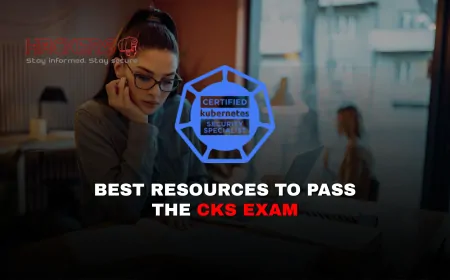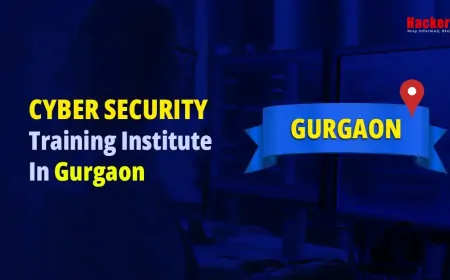Why the CC Certification Is the Best Starting Point for Beginners
Picture this: You're sitting at your desk, staring at job listings for cybersecurity roles, feeling overwhelmed by terms like "penetration testing" or "intrusion detection." You've got zero experience in tech, but a burning curiosity about protecting the digital world from hackers and breaches. Sound familiar? If you're a beginner dreaming of breaking into cybersecurity—a field exploding with opportunities—the Certified in Cybersecurity (CC) certification from ISC2 could be your perfect launchpad. In a world where cyber threats make headlines daily, from ransomware attacks crippling hospitals to data leaks exposing millions, the need for skilled professionals has never been greater. But where do you start? Many certifications demand prior IT knowledge or hefty fees, leaving newcomers discouraged. That's why the CC stands out. It's designed specifically for absolute beginners, offering a free exam, no prerequisites, and foundational knowledge that builds confidence without the intimidation factor.In this in-depth blog, we'll explore why the CC is arguably the best entry point for aspiring cybersecurity pros. We'll cover its accessibility, content, benefits, and how it stacks up against alternatives. By the end, you'll see why thousands are choosing it to kickstart their careers. Let's dive in and demystify this game-changer!

Table of Contents
- Understanding the CC Certification
- No Experience Required: True Accessibility for Beginners
- Free and Affordable Entry into Cybersecurity
- Comprehensive Yet Beginner-Friendly Curriculum
- How CC Compares to Other Entry-Level Certifications
- Career Boost and Global Recognition
- Preparation Made Easy: Resources for Success
- Why Choose Webasha for the Course
- Related Blogs on Webasha
- Conclusion
Understanding the CC Certification
The Certified in Cybersecurity (CC) is an entry-level credential offered by ISC2, a nonprofit organization that's been a pillar in the cybersecurity community since 1989. ISC2 is famous for advanced certifications like the CISSP, but they recognized a gap: too many people wanted to enter the field but lacked a straightforward starting point. Launched in 2022 as part of the "One Million Certified in Cybersecurity" initiative, the CC aims to train one million newcomers worldwide, addressing the global shortage of over 3.5 million cybersecurity jobs.
What sets the CC apart? It's vendor-neutral, meaning it teaches universal principles that apply to any organization, not just specific tools from companies like Microsoft or Cisco. This makes it versatile for beginners who aren't sure where their career might lead. The certification validates your understanding of core concepts, proving to employers that you're ready to learn on the job.
Think of it as the first rung on a ladder. Once certified, you're positioned to pursue more advanced roles or certifications. And with the digital landscape evolving—think AI-driven threats and remote work vulnerabilities—the CC equips you with timeless basics. As of September 2025, it's still going strong, with the free exam promotion ongoing, making it more accessible than ever.
But why is it the best for beginners? Let's break it down further.
No Experience Required: True Accessibility for Beginners
One of the biggest barriers for newcomers is the "experience paradox"—you need experience to get a job, but you need a job to gain experience. The CC shatters this by requiring absolutely no prior work in IT or cybersecurity. Unlike some certs that suggest or mandate years in the field, ISC2 designed this for fresh faces: college students, career switchers from non-tech backgrounds like marketing or education, or even high school grads exploring options.
Imagine Sarah, a former teacher who pivoted during the pandemic. With no tech background, she felt lost. But the CC's zero-prereq policy let her jump in. She studied part-time, passed the exam, and landed a junior analyst role within months. Stories like hers are common because the CC assumes only basic computer skills like using email or browsing the web.
This accessibility extends to diversity. Cybersecurity needs more women, minorities, and non-traditional candidates, and the CC lowers the entry bar, fostering inclusivity. If you're analytical, enjoy solving puzzles, or just want to make the world safer online, this cert welcomes you. No gatekeeping here it's truly beginner-friendly.
Plus, as the field grows, employers are prioritizing potential over pedigree. A CC on your resume signals initiative and foundational knowledge, often trumping a degree alone.
Free and Affordable Entry into Cybersecurity
Cost is another huge hurdle. Many certifications charge hundreds for exams, plus training materials. Not the CC. As part of ISC2's initiative, the exam is free for a limited time yes, you read that right, zero dollars to take it.
Even post-promotion, the normal fee is around $199, far less than competitors. After passing, there's a modest $50 annual maintenance fee, which includes access to continuing education. Compare that to ongoing costs for other certs, and it's a steal.
Free official training? Check. ISC2 provides self-paced online courses, videos, and quizzes at no cost. This means you can prepare without spending a dime, perfect for beginners testing the waters. In an era where education debt is rampant, the CC offers a low-risk way to invest in your future.
I've heard from folks who saved thousands by choosing CC first. It's not just affordable—it's empowering, letting passion, not pocketbook, drive your career choice.
Comprehensive Yet Beginner-Friendly Curriculum
Don't let "comprehensive" scare you the CC curriculum is built for beginners, covering essentials without overwhelming jargon. The exam focuses on five key domains, each explained simply:
- Security Principles (26%): The basics of keeping information safe, like confidentiality (secrets stay secret), integrity (data isn't altered), and availability (systems are always up). It's like learning the rules of the road before driving.
- Business Continuity, Disaster Recovery, and Incident Response (10%): Plans for when things go wrong, such as backing up data or responding to a hack calmly.
- Access Controls (22%): Who can access what? Covers passwords, biometrics, and rules like "least privilege" (give only needed access).
- Network Security (24%): Protecting connections between devices, including firewalls (digital barriers) and spotting threats like viruses.
- Security Operations (18%): Daily tasks like monitoring logs, hardening systems (making them tougher to crack), and training against scams.
These topics are practical, with real-world examples. For instance, you'll learn why clicking suspicious emails is risky, explained in plain English. The content avoids deep dives into code or hardware, focusing on concepts anyone can grasp.
Beginners appreciate this balance—it builds a solid base without the steep learning curve of more technical certs. Plus, it's updated regularly to reflect current threats, like AI vulnerabilities.
How CC Compares to Other Entry-Level Certifications
To see why CC shines, let's compare it to popular alternatives like CompTIA Security+ and Google Cybersecurity Professional Certificate. While all are great, CC edges out for pure beginners due to its simplicity and cost.
Here's a handy table summarizing the key differences:
| Certification | Cost | Prerequisites | Difficulty Level | Focus | Best For |
|---|---|---|---|---|---|
| ISC2 CC | Free (limited time); normally $199 | None | Easy | Foundational concepts, theory-focused | Absolute beginners, quick entry |
| CompTIA Security+ | $392 exam fee | Recommends Network+ or equivalent | Medium | Broader IT security, hands-on elements | Those with basic IT knowledge |
| Google Cybersecurity Certificate | $49/month on Coursera | None | Easy to Medium | Practical skills, tools like Python | Hands-on learners, Google ecosystem |
As seen, CC wins on cost and ease, making it ideal for starters.
Career Boost and Global Recognition
Getting CC isn't just about knowledge it's a resume rocket. Employers trust ISC2, so this cert opens doors to roles like security analyst, IT support, or compliance assistant, with starting salaries around $60,000 USD. ISC2 reports certified pros earn 35% more than non-certified.
Globally recognized, it's valuable everywhere. Plus, it connects you to ISC2's 180,000+ member network for mentorship. For beginners, this boost builds momentum, leading to advanced certs and promotions.
Real success? Many land jobs within 6 months, proving CC's power.
Preparation Made Easy: Resources for Success
Prep is straightforward. ISC2's free 20-hour course covers everything. Practice with sample questions, join forums like Reddit's r/isc2. With 4-8 weeks of study, pass rates are high.
From October 1, 2025, it's CAT format adapts to your answers for fairness.
Why Choose Webasha for the Course
For guided prep, Webasha Technologies excels. Their CC courses offer expert instructors, hands-on labs, and flexible online options. With high pass rates and job support, it's a smart choice.
- Affordable plans with recordings
- Mock tests and mentorship
- Proven alumni success
Visit Webasha's CC Course to start.
Related Blogs on Webasha
- Cybersecurity Basics for Beginners
- Top Cybersecurity Certifications in 2025
- Phishing Attacks Explained Simply
- Building a Career in Cybersecurity
Conclusion
In summary, the CC certification is the ultimate beginner's gateway: accessible, free, comprehensive, and career-boosting. It outshines others in ease and value, preparing you for a thriving field. Whether solo or with Webasha, start today—your cybersecurity journey awaits!
What makes CC better than Security+ for beginners?
CC is free, easier, and requires no prereqs, while Security+ is more in-depth and costly.
Is the CC exam still free in 2025?
Yes, as part of ISC2's ongoing initiative.
Do I need any IT background for CC?
No, it's designed for complete newcomers.
How long does it take to prepare for CC?
Typically 4-8 weeks part-time.
What jobs can CC help me get?
Entry-level like analyst or support roles.
Does CC expire?
No, but maintain with $50/year and CPE credits.
What's the CC passing score?
700 out of 1000.
Are there free resources for CC prep?
Yes, ISC2's official training.
How does CC compare to Google Cert?
CC is theory-focused and free; Google is practical with a fee.
Is CC recognized worldwide?
Yes, by ISC2's global standards.
What's changing with the CC exam in October 2025?
It becomes CAT format with 100-125 questions.
Can career changers benefit from CC?
Absolutely, it provides quick credibility.
How many domains are in the CC exam?
Five, covering basics to operations.
Is CC vendor-neutral?
Yes, applicable anywhere.
What's the annual fee for CC?
$50 for maintenance.
Can I take CC online?
Yes, via proctored testing.
Why is CC good for students?
It's free and builds resumes early.
Does CC include hands-on labs?
Not required, but prep can include them.
How does CC help with advanced certs?
It's a stepping stone to SSCP or CISSP.
Is CC worth it for non-tech folks?
Yes, it demystifies cybersecurity simply.
What's Your Reaction?










































































